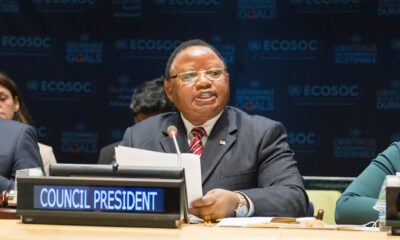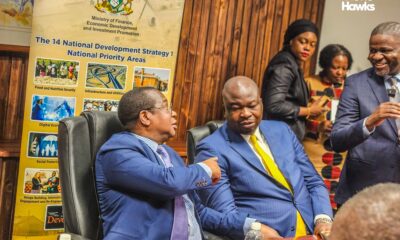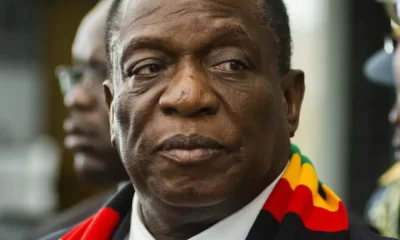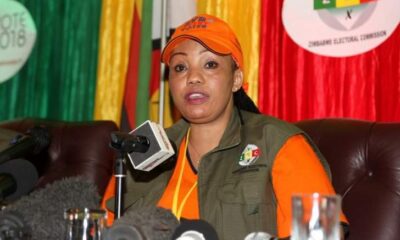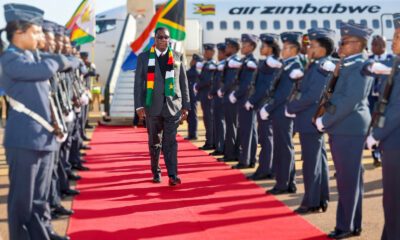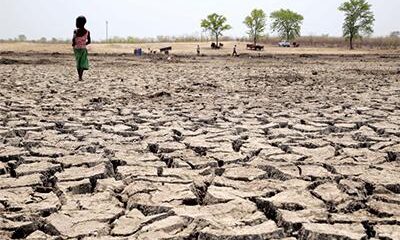
News
Geopolitics: Harare backs Moscow
Published
1 year agoon
By
NewsHawks…as US-Russia new cold war winds silently sweep across the region
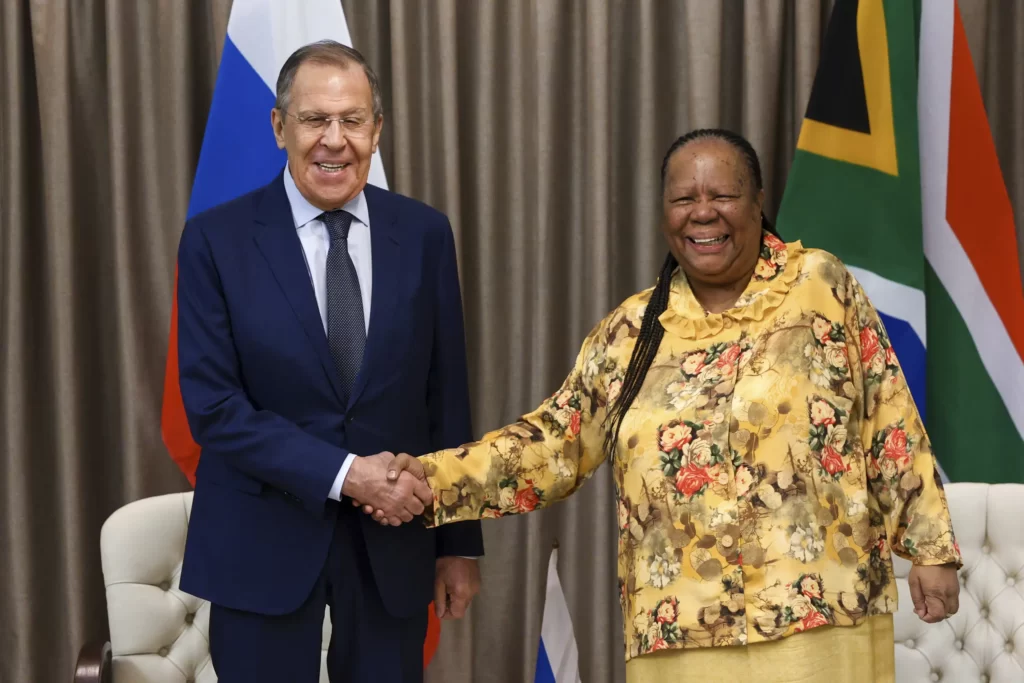
WINDS of a renewed Cold War between the United States and Russia — thunderously manifesting itself in Ukraine through iron and blood — swept across the southern African region this week as Russian Foreign minister Sergey Lavrov visited South Africa to meet his counterpart Naledi Pandor, five months after his American opposite number Anthony Blinken was in Pretoria.
BERNARD MPOFU
While Lavrov was in South Africa asserting Russia’s influence in Africa, US ambassador to the United Nations Linda Thomas-Greenfield travelled to Ghana, Mozambique and Kenya this week to advance mutual priorities following December’s US-Africa Leaders Summit in Washington DC.
The moves heightened the ongo[1]ing geopolitical rivalry and turf wars between Washington and Moscow in southern Africa and across the continent.
Other global powers and small states are also involved in the new scramble for Africa. The US has been trying to muscle out Russia from the region to a point of coming up with a law that would oblige Washington to punish African governments that abet Russian “malign” activities on the continent.
Russia has deep historical roots in the region, only surpassed by former colonial powers in Africa. The Countering Malign Russian Activities in Africa Bill passed in the US House of Representatives on 27 April 2022 by a huge bipartisan 419- 9 majority and was sure to be passed by Senate to become law. The US seems to have put it on ice — at least for now.
If implemented, it would direct the US Secretary of State “to develop and submit to Congress a strategy and implementation plan outlining United States efforts to counter the malign influence and activities of the Russian Federation and its proxies in Africa”.
The bill broadly defines such malign activities as those that “undermine United States objectives and interests”.
The secretary of State would have to monitor the actions of Russia’s government and its “proxies” — including private military companies (clearly Wagner is in the sights) and oligarchs. Russia has significant economic and military ties with Africa.
Washington would have to counter such activities effectively, including through US foreign aid programmes. It would need to “hold accountable the Russian Federation and African governments and their officials who are complicit in aiding such malign influence and activities”.
The bill was introduced to Congress on 31 March 2022 and was clearly a response to Russia’s 24 February 2022 invasion of Ukraine. Several other punitive laws aimed at Russia — including one directing the administration to gather evidence of Russian war crimes in Ukraine — were introduced at about the same time.
Russia was also hit with a wave of new sanctions by the US and its allies around the world. Zimbabwe is also under targeted American sanctions due to policy clashes and a fallout over human rights and elections theft disputes. Re-engagements efforts have so far been in vain.
In August last year, Blinken, the US secretary of State, appealed to “governments, communities and peoples” across Africa to embrace Washington’s vision of democracy, openness and economic partnership in the first major speech of a three-nation tour of sub-Saharan Africa.
Blinken was speaking in South Africa on the first stop of his tour, which included the Democratic Re[1]public of Congo and Rwanda. The new diplomatic effort came after several years during which Washington appeared uninterested in sub-Saharan Africa.
The tour was portrayed as an attempt to counter recent efforts by Russia and China to gain influence on the continent, although Blinken denied that. A new scramble for Africa — after the 19th century one — is currently underway. The approach and methods may be different, but the objective is the same — to get access to resources and markets.
Big and small countries across the world want a foothold on Africa, a continent endowed with vast natural resources. As a result, different countries around the globe have bilateral summits with Africa: The US, China, Russia, Japan, European Union states, France on its own, Britain, Germany and Italy, among others. Even small countries like Belarus have their own summits with Africa. Prior to Blinken visiting South Africa, Democratic Republic of Congo and Rwanda in August last year, Lavrov had been in Africa the month before that.
Lavrov visited Egypt, the Republic of Congo, Uganda and Ethiopia last July. This week Lavrov — President Vladimir Putin’s right-hand man — was in Pretoria ahead of joint military exercises with South Africa and China off the coast of Durban next month.
His visit to South Africa brought into sharp focus complex geopolitical dynamics currently projecting Africa as a new frontier for a hotly contested race for global influence among world powers, international relations experts and political scientists told The NewsHawks.
South Africa, a regional power[1]house and the most sophisticated economy on the continent, defended its close ties and joint military drills with Russia as it hosted Lavrov on his first visit there since the invasion of Ukraine.
Lavrov said he appreciated South Africa’s neutral stance since the beginning of the war a year ago and blamed the continuing conflict squarely on the Ukraine and the West.
“It is well-known that we supported the proposal of the Ukrainian side to negotiate early in the special military operation . . . it is well known that our American and British and some of our European colleagues told Ukraine that it is too early to deal,” he said.
Pandor, the South African International Relations and Cooperation minister, has repeatedly said Pretoria would like to see a diplomatic solution through dialogue.
But Russia has already rejected Ukrainian and Western demands that it should first withdraw completely from Ukraine as a condition for any negotiations.
“As South Africa, our sincere wish is that the conflict in Ukraine will soon be brought to a peaceful end through diplomacy and negotiation,” Pandor said.
However, she defended South Africa’s right to maintain bilateral relations with whichever countries it wants to and not be dictated to by the West. Despite pressure from the US, Pretoria, like many other African countries, has refused to join Washington in condemning Russia for its invasion of Ukraine.
Zimbabwe in March last year abstained, then voted with Russia and later abstained again on UN motions on Russia over Ukraine, effectively putting itself behind Moscow in the scheme of things. In the last vote in October last year after Russia’s controversial referenda in Russian-speaking Ukrainian territories — following Moscow’s veto of a similar move in the Security Council in late September — 26 African countries voted in favour of the resolution rejecting the referenda in four Ukrainian regions. Nineteen others abstained.
Mali, the Central African Republic, Ethiopia, the Republic of Congo, South Africa, Sudan, Uganda, and Zimbabwe were among the African countries that abstained. Eritrea, which had previously voted to reject a UN resolution condemning the Russian invasion of Ukraine, also abstained. Burkina Faso, Cameroon, Equatorial Guinea, and Sao Tome were absent from the assembly.
The UN General Assembly consisting 193 member states had met in an emergency meeting. It adopted the resolution with 143 votes in favour, five countries against and 35 abstaining, including China, India, Pakistan, and South Africa, despite diplomatic efforts by the US.
The five states that voted against the motion were naturally Russia, Belarus, Syria, North Korea, and Nicaragua.
Earlier in October last year, Ukrainian Foreign Minister Dmytro Kuleba had toured Africa in an effort to counter Russia’s apparent hold on the continent. The goal was to persuade leaders to support Kiev. He was forced to cut his visit short after Moscow intensified its bombing of Ukraine.
During Lavrov’s visit, Pretoria invited Putin to visit the country later this year for the summit of BRICS, a grouping of emerging economies, signalling the country’s growing confidence on South-South cooperation.
Putin has not confirmed attendance. BRICS (an acronym after its members) comprises Brazil, Russia, India, China, and South Africa.
Eldred Masungure, a political science professor and lead researcher at the Harare-based Mass Public Opinion Institute, says while trade relations between most African countries are skewed in favour of the Western bloc, South Africa’s latest foreign policy move seemingly realigning with Russia signalled its autonomy as a regional powerhouse.
This autonomy, Masungure says, also mirrors the complexity of the international political economy and attendant relations.
“South Africa’s foreign policy has been caught up in the convoluted geo-political dynamics that define relations between the West and both China and Russia; I’m sure you are aware of the controversy around the naval drills that will be taking place around the first anniversary of the Russian invasion of Ukraine,” Masunungure says.
“Even the West itself is carrying out its own naval exercises throughout the world with friendly countries or its allies. The South African position is that why should we not be able to do the same with our allies? “Africa is becoming the new battleground, the new frontier of global geo-political battles. You should understand Africa’s position or perspective is that Africa is elevating its leverage in its dealings with the West and the East.
“We are like going back to the Cold War era where Africa and other regions took a non-aligned position. It may result in the resuscitation of the Non-Aligned Movement or strengthening of the BRICS. So it is more complex.”
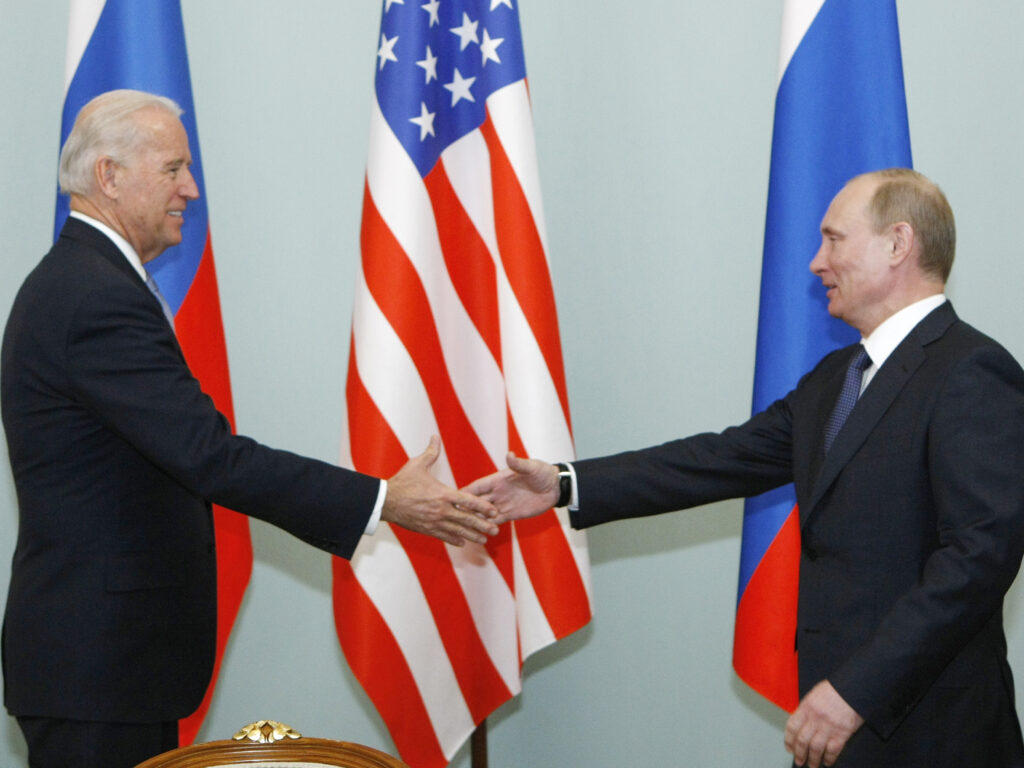
Stephen Chan, a professor of international politics at the University of London’s School of Oriental and African Studies, said Russia’s role in providing military and technical support to former liberation movements in Africa has become its trump card.
“Currently the US has failed meaningfully to detach most countries in southern Africa away from Russia and China. Even Zambia, a key ‘target’ for the US in the region, still retains immensely strong economic links with China,” Chan says.
“But the history of South Africa’s liberation, at a time when the US supported the apartheid regime, is such that the ANC is deeply indebted to Russia for militarily training its cadres in Moscow (including Thabo Mbeki); for ensuring Cuban military intervention turned the apartheid military tide at the 1988 Battle of Cuito Cuanavale in southern Angola, leading to the fall of the apartheid hawks and the rise of FW de Klerk and the release of Nelson Mandela.”
The battle of Cuito Cuanavale and the Cuban intervention in Angola is one of the turning points in southern African history. It led to the movement of a powerful Cuban armed force into the west, towards the Namibian border.
The fighting in the south-western part of Angola led to the withdrawal of the South African defence forces, ANC presence in Angola, and to the Independence of Namibia. It also began a process of secret negotiations in South Africa, leading to Mandela’s release and eventually freedom.
The Battle of Cuito Cuanavale was fought on the banks of the Lomba River in the vicinity of Cuito Cuanavale in south-eastern Angola, between Unita — backed by South African forces and the US — and the Angolan army (FAPLA, which was the People’s Movement for the Liberation of Angola’s armed wing) aid[1]ed by Cuba, the Soviet Union and to a lesser extent East Germany.
The stakes were high for both sides and the battle involved the biggest conventional operations of South African forces since World War II. Chan says South Africa’s gratitude to Russia will be on display next month in joint military exercises between its navy with the Russians and the Chinese. South Africa is hosting the Russian and Chinese navies for the February exercises off the coast of the eastern coastal city of Durban.
Pandor maintains all countries conduct military exercises “with friends”, a strategic move which may counterbalance competing interests on the continent. “The Russians are sending a state-of-the art warship as part of this.
The Russians too want to demonstrate that they take South Africa seriously,” Chan says.
Alexander Rusero, a journalism and international relations lecturer at the Mutare-based Africa University, says the economic success stories of emerging markets and BRICS countries presented both opportunities and threats to the multi-polar global system post the Cold War where Russia emerged bruised after the collapse of the Soviet Union.
Through glasnost and perestroika, a series of political and economic reforms superintended by the late Russian leader Mikhail Gorbachev, Russia opened up its economy and, like the proverbial phoenix, rose from the ashes to become a reformed power.
Its rise and that of China led to multi-polarity, which has check[1]mated the US, currently on decline, on the global stage.
“I think we have to contextualise the relationship between Russia and Africa against the backdrop of the Russo-Ukraine war within the framework of a rule-based order. The rule[1]based order that emerged after the Cold War has actually come to an end,” Rusero said.
“We are back to the pre-Cold war era; we are back to the realist mode where states above everything else place their survival as the primary goal. They place survival above any other interest that you may think of — ahead of even the so-called world peremptory norms, issues of human rights, issues of democracy etc. If you look closely at Russia and South Africa, Moscow is the opposite of what Pretoria believes in (issues to do with democracy and human rights).
“However, now in terms of survival, you have to recall that the ANC received a lot of support from Moscow back then when it was still a liberation movement. The context in which Russia is coming into Africa, just like any other state, is a signifier of the rules-based order.”
As China and Russia grow their influence in Africa, the US is also dangling the carrot on the resource-rich continent which is home to over 1.4 billion mostly young people.
During last month’s US-Africa Summit in Washington DC, the world’s largest economy promised a US$55 billion financial package over the next three years to Africa in a foreign policy move which confronts regional leaders with the reality check of a complex American geopolitical matrix.
The US tabled US$55 billion, as well as business deals and initiatives in areas like technology, space, cybersecurity, food security and the environment for African leaders.
This came against a backdrop of the US’s Countering Malign Russian Activities in Africa Act, which Southern African Development Community leaders emphatically rejected in Kinshasa last August. Rusero says the US is living up to its foreign policy dictate of not having permanent enemies or friends, but permanent interests.
“Even America itself, unlike at any other time, is prepared to dine and wine with the most evil regimes for as long as it scores certain strategic interests,” he said.
“So democracy and human rights are no longer preconditions in as much as the global relations are concerned. The Russians and Chinese have set that precedence that you can actually prevail successfully as an authoritarian administration and still make friends, and be attractive and determine the outcome of international relations.”
As the 21st century moves into its third de[1]cade, American supremacy continues to generate intense debate about the nature, quality and sustainability of US power. At the same time, significant developments in four rising power blocs — China, Russia, India and the European Union — have provoked analysts to ask whether multipolarity is a realistic prospect.
Multipolarity in the 21st Century: A New World Order, a book edited by Donnette Murray and David Brown, assesses the likelihood of a multipolar world developing, either by a marked US decline and/or by the ability of these putative “rivals” to continue to rise to the level necessary to be credibly considered a superpower.
Written by a combination of emerging scholars and recognised experts, this volume provides a timely and authoritative analysis of one of the most controversial and compelling geopolitical debates of the 21st century.
Lavorv’s visit to Pretoria this week provided the clearest indication yet of a renewed Cold War, accompanied by growing geopolitical rivalry and emerging multipolarity against the backdrop of the Russia-Ukraine war and its fallout, as well as security and economic repercussions on a global scale.
You may like

